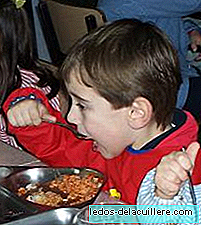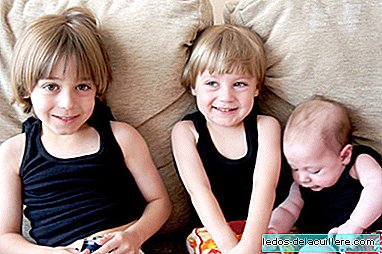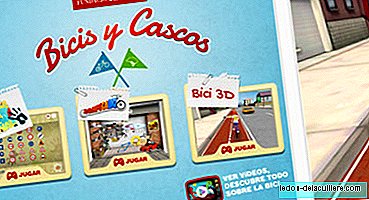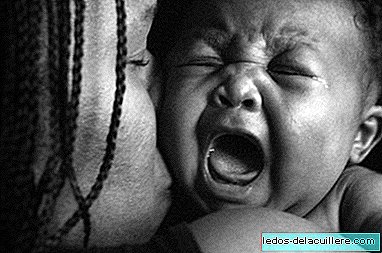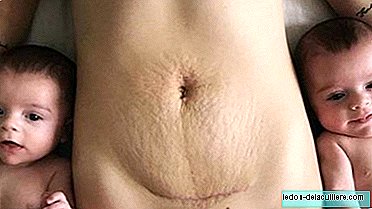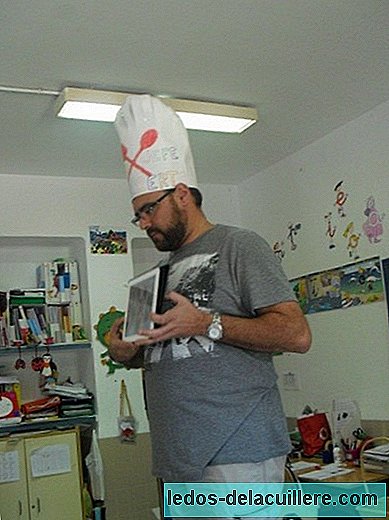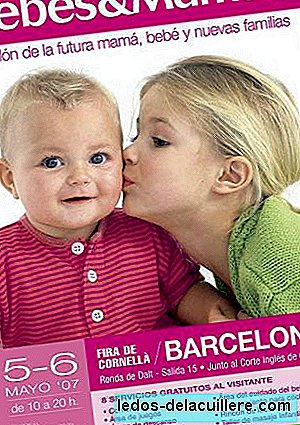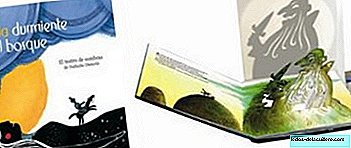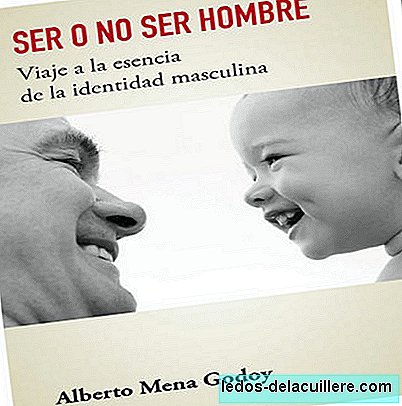
Yesterday we presented the first part of an interview that we had with Alberto Mena Godoy who is a body psycho therapist and author of 'Being or not being a man. Journey to the essence of male identity. ' In it we had the opportunity to speak extensively about the male identity crisis, the need for babies to bond with their mothers, and normalized abuse of children.
It was very intense and interesting, but due to its length, we had to divide the content into two deliveries, so that today we will address aspects related to the role of the family in the change, and in satisfying the basic needs of the children. We have also concluded that in our society the connection with our nature and human relationships fails. We hope you like it, after reading it surely more than one is encouraged to buy the book. PyM.- What role do family and society have in the change: that is, what responsibilities can we assume to help children become teenagers and healthy adults?
A.M.- Society and family are the main responsible for a real transformation. As I say in the book, the first transformation is individual. From there to the family, and from the family to society. From the individual transformation, transformations will happen in our immediate environment, starting with our children.
Our children need to be heard and their needs met. From there conflicts will arise, so it is important to know how to accompany and manage them.
When I talk about the true instinctive needs of children, they are really few but fundamental. Basically we need to survive, we need the adult to protect us and give us security, we need to nurture ourselves emotionally, be loved for who we are, be heard and seen... We need to have our space, our time, we need to be respected in how we are, and we need to know the other, to be able to enter into things, enter into what we like and within people also with our sexuality, especially starting from of adolescence When we are born, we have the right to have all these needs satisfied. That is the law of instinct: satisfaction. With that base more than less covered, it will be time to set the limits when necessary. Fathers and mothers have a great responsibility in it ...
PyM.- I believe that attachment, parenting / conscious education and respect are the basis of a good family relationship, what would you add?
A.M.- Yes, that is the basis. Communication, listening to needs, dialogue with emotions and respect, trying not to lose the connection within the relationship. A global respect for what the child gets. The truth is also important. To be able to go with the truth. This is how it really grows. Clarity and congruence: be clear and congruent, as opposed to confusing messages or double messages. Containment is also important, to be able to contain everything that is emerging. The connection is fundamental, to be able to connect with the children as they seek to connect with you. If there is no felt connection, it is difficult, if not impossible, for there to be a transfer.
In that children are great teachers, They go to the constant search for connection with the other: they look for you, look at you and hold your eyes. This is how they nurture. Sharing, cooperation and collaboration without being forced to do so is also important. And for me there are two elements that support everything else: the commitment and responsibility of adults.
PyM.- In our society interpersonal communication fails, and what else?
A.M.- And what else? ... Does everything ever fail ever? ... Just kidding. I think unfortunately too many things fail. I will try to synthesize them to the fullest. For me there are two fundamental issues that fail, from which many others derive: 1. The connection with the nature of who we are, and 2. The human relationship.
Each time we are becoming more thinking beings disconnected from our body. This is a danger and a very widespread fact, although it has stopped surprising me for everything I told you yesterday. Hence the importance of regaining the essence of who we are as human beings, the connection with our instinct and with our emotional life, which is in the body. It is important to preserve and listen to instinct much more than we do. Otherwise we become increasingly denatured and dehumanized entities. Many have been responsible for despising and labeling instinct as something dangerous. You will tell me what is dangerous about a child connected to his instinctive needs. Of course, if we crush it there, then it doesn't surprise me that it is dangerous in its damaged instinct. That is why the growing movement related to respectful parenting is so important, among others.
As for the human relationship, it is obvious that it fails. It costs us a lot to relate, talk about us, what happens to us, what happens to the other, what we feel ... We have a tremendous difficulty, especially in the conflict. As you say, interpersonal communication fails. What else? ... I believe that what makes our human relationship more difficult has to do with the damage received during our human development.
And it is not only a belief or opinion, for me it is a verifiable fact in the therapeutic space. Based on the experiences of relationship lived, we carry an accumulated baggage that in adult life we put into social relationships with great ease. It becomes increasingly necessary to know our own history to try to transform it from the truth and reality of who we are. In this way we will be able to relate better and better with ourselves, and of course, also with others.
Children are great teachers of the connection with the other: they look for you, look at you and hold your eyes. This is how they nurture
PyM.- What can your book bring to parents who follow Peques and Más?
A.M.- Well, the truth is that there are not a few readers, especially readers, who have told me that this is a book that every father and mother should read. Although the book focuses on male and male identity, the entire first part is dedicated to human development, encompassing men and women, in the second part focusing more on men, without losing sight of the relationship with parents which is what configures our character. In the book, one of the most important issues is to observe that when we look at children, we are also looking at ourselves. Someone said that "childhood is the playground where we play the rest of our lives." In the book we will see our children and we will see ourselves, from a new place.
The most I aspire to is that the book arrives and touches in some important place of the reader. That to begin with, awareness can be broadened about what happens in human relationships that are forging us as people. And for now, I already tell you that because of the answers I receive, that maximum I aspire to is being fulfilled. With that I am calm, even with the courage to continue writing and making my vision known about human beings and human relationships.
To be or not to be a man is conceived as an instrument of conscience and transformation to reflect on aspects that seriously affect, not only men, but also women
Before saying goodbye to Alberto and thanking his enormous generosity for answering our questions, I would like to invite you to read the book. It can be found at the end of January in large stores throughout the Spanish state (FNAC, Casa del Libro, El Corte Inglés, ...), and in any bookstore.
Currently, the paper book and the ebook can also be purchased online at the following sites: Amazon (kindle format), Spain, Argentina, Mexico and Colombia.
We have been delighted to have Alberto Mena in Peques y Más, I can personally assure you that the interview has contributed me a lot on a personal level. It certainly addresses issues that need reflection. We wish you many successes with your book and in your professional career.


